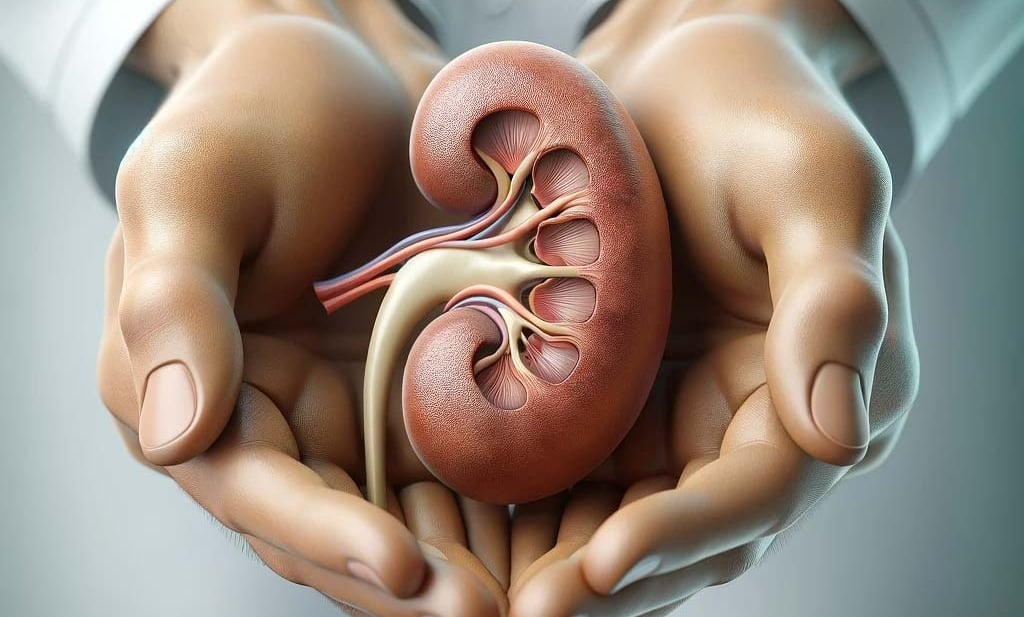Understanding kidney and ureteric stones
Understanding urinary stones empowers patients in making decisions about their management. With advancements in medical procedures like ureteroscopy, shockwave lithotripsy (SWL), and percutaneous nephrolithotomy (PCNL), treatment has become less invasive and more effective. The best strategy remains prevention through lifestyle and dietary changes.
URINARY STONE DISEASE
Ivo Dukic
1/28/20243 min read


Kidney stones can be a real nuisance, interrupting daily life with discomfort and pain. Let's dive into understanding this condition better, emphasising the crucial role of personalised professional advice.
Spotting the symptoms
Kidney stones might not make their presence known until they start moving within your kidney or into your ureter. Here are some signs to watch out for:
Sharp, persistent pain in the side and back, below the ribs.
Pain that spreads to the lower abdomen and groin.
Pain during urination.
Urine that is pink, red, or brown.
Nausea and vomiting.
An urgent and frequent need to urinate.
Being aware of these symptoms is the first step in tackling the issue.
What causes kidney stones?
Kidney stones develop when your urine contains more crystal-forming substances, like calcium, oxalate, and uric acid, than the fluid in your urine can dilute. Factors increasing your risk include:
Not enough fluids.
A diet high in salt, animal protein, and oxalates, or low in calcium.
Being overweight.
Certain medical conditions and medications.
Understanding these factors can help you start making changes to reduce your risk.
Making the diagnosis of kidney or ureteric stones
To confirm the presence of kidney stones, your doctor may suggest:
Blood tests to check for excessive levels of certain minerals.
Urine tests to identify overproduction of stone-forming minerals.
Imaging tests, such as CT scans or ultrasounds, to visualise the stones.
Analysing passed stones to figure out their composition.
Treatment options: a range to suit everyone
Treatment for kidney stones varies, depending on the stone's size, location, type, and your individual health needs.
Common treatments include:
Increasing water intake to pass the stone naturally and prevent further stones from being made
Pain relief medications.
Procedures like shockwave lithotripsy (SWL), where sound waves break the stone into smaller pieces whilst you are awake.
In more severe cases, surgical options like ureteroscopy or percutaneous nephrolithotomy might be necessary whilst you are asleep (general anaesthetic)
Prevention: better safe than sorry
Prevention is often more manageable than treatment. Here are some steps to help prevent kidney stones:
Drink plenty of water every day (at least 2.5 litres a day, spread throughout the day)
Eat a balanced diet low in salt and animal proteins.
Include the right amount of calcium in your diet.
Stay active and maintain a healthy weight.
When to seek professional advice
If you think you might have a kidney stone, it's crucial to consult a healthcare professional. They can provide personalized advice based on your unique health profile and lifestyle. Remember, what works for one person might not work for another. Especially if you're experiencing severe pain, blood in your urine, or difficulty passing urine, don't delay in seeking medical attention.
The role of tailored professional advice
Each individual's experience with kidney stones can be different, influenced by various factors like diet, lifestyle, and genetics. This is why personalised advice from healthcare professionals is invaluable. They can provide specific recommendations and treatment options suited to your particular situation. For instance, if you're prone to calcium oxalate stones, your dietary advice might differ from someone who forms uric acid stones.
Professionals can also guide you through the decision-making process regarding treatment options. While some might benefit from a simple change in diet and hydration, others may require medication or even surgical procedures. Your doctor can help you understand the risks and benefits of each treatment option, ensuring you make an informed decision that aligns with your health goals and lifestyle.
Conclusion
Understanding kidney stones is just the beginning. Taking proactive steps to manage this condition, and seeking personalized advice from healthcare professionals, can make a significant difference in your quality of life. Remember, being informed and prepared can help you tackle kidney stones head-on, minimizing their impact on your daily routine.
Your health is your most valuable asset; taking care of it should always be a top priority. Stay healthy, stay informed, and don't hesitate to reach out to a professional, such as your doctor or urologist for help when you need it.
Mr Ivo Dukic is an experienced consultant urologist who is a high-volume stone surgeon in Birmingham. You can schedule an appointment with him for expert, bespoke advice through his Top Doctors profile or book an appointment through the Harborne Hospital, HCA Healthcare or the Priory Hospital, Edgbaston, Circle Health Group.
Ivo Dukic
Contacts
e-mail: admin@ivodukic.co.uk
Telephone number for private patients:
0121 716 9046
(Mondays to Fridays 0800 - 18:00)
For NHS patients seen at University Hospitals Birmingham NHS Hospitals please get in contact on
0121 424 9011
(Mondays to Fridays 0900 - 17:00)
ivodukic.co.uk
© 2025 UrolSurg LTD


